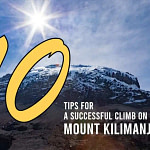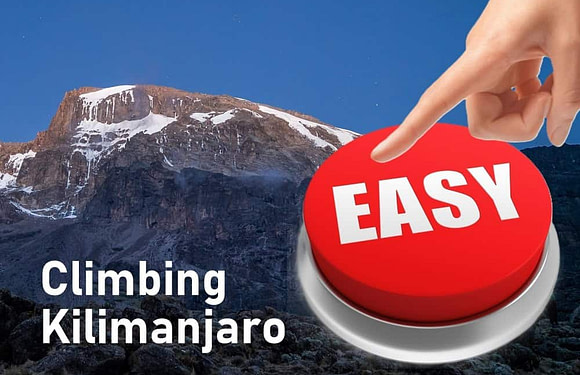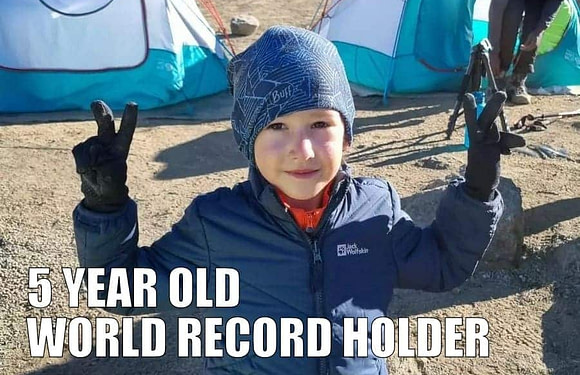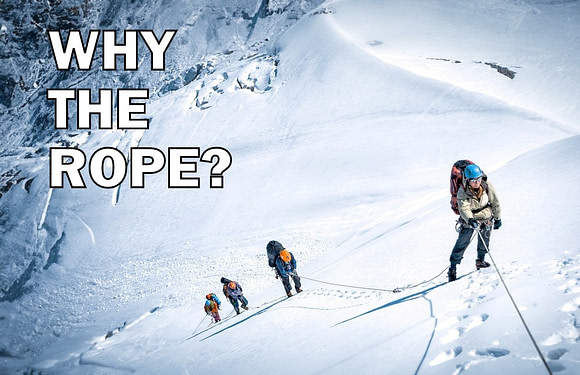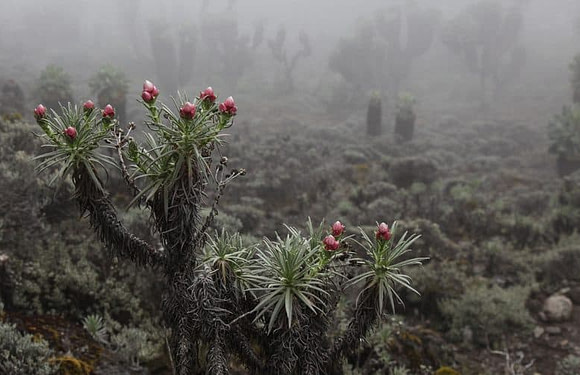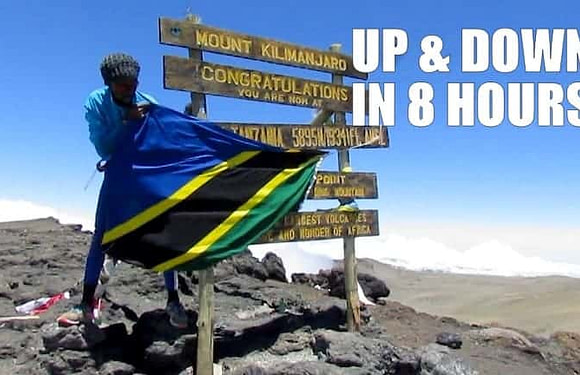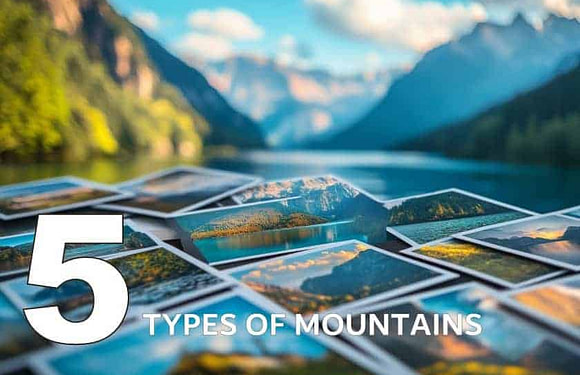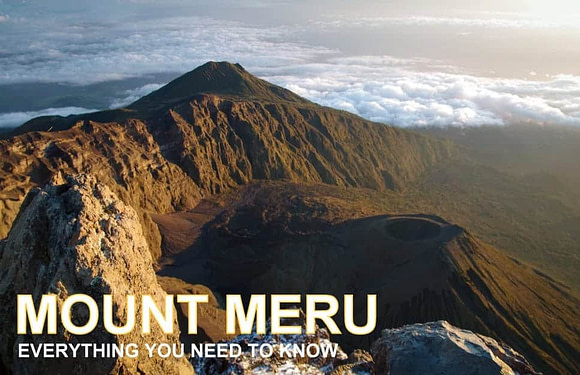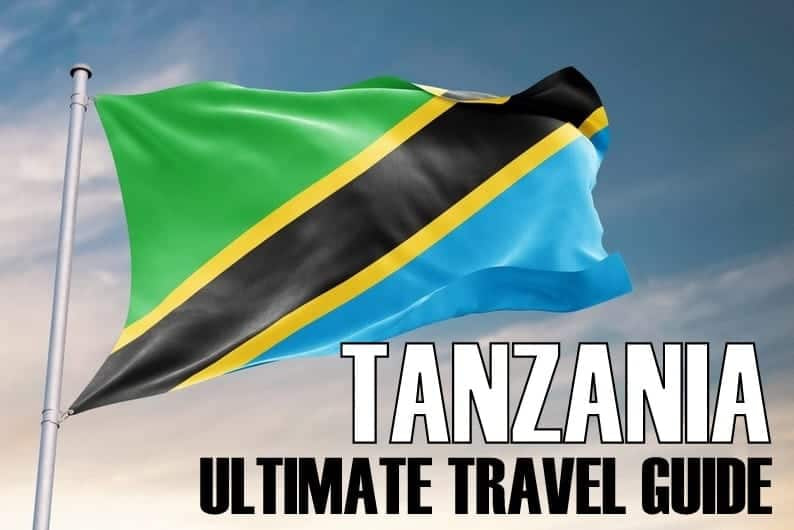
Visiting Tanzania?
Here are answers to the most frequently asked questions about traveling to Tanzania.
- General Information
- Travel Essentials
- Currency and Payments
- Health and Safety
- Cultural Etiquette
- Food and Cuisine
- WiFi and Cell Service
- Transportation
- Economy
General Information
How do you Pronounce Tanzania?
Tanzania is pronounced ‘Tan-za-KNEE-uh.’
Where is Tanzania Located?
Tanzania is a country located in East Africa.
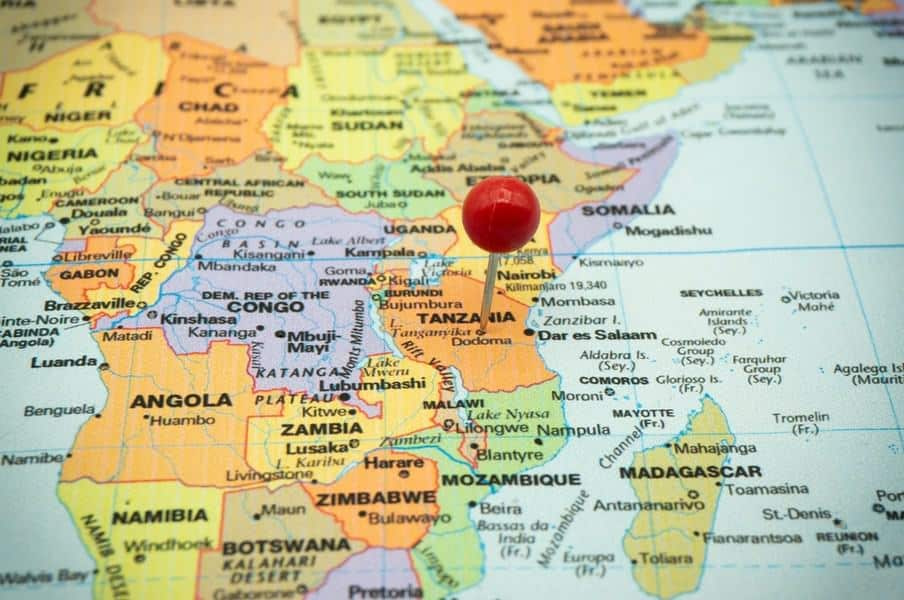
What Countries Border Tanzania?
Tanzania shares its borders with eight countries: Kenya, Uganda, Rwanda, Burundi, the Democratic Republic of Congo, Zambia, Malawi, and Mozambique.
Kenya and Uganda lie to the north; Rwanda, Burundi, and the Democratic Republic of Congo lie to the west; and Zambia, Malawi, and Mozambique lie to the south. The Indian Ocean lies to its east.
What is the Population of Tanzania?
Tanzania has a population of over 58 million people, making it one of the most populous countries in Africa. The population of Africa is almost 1.5 billion, which represents about 18% of the total world population.
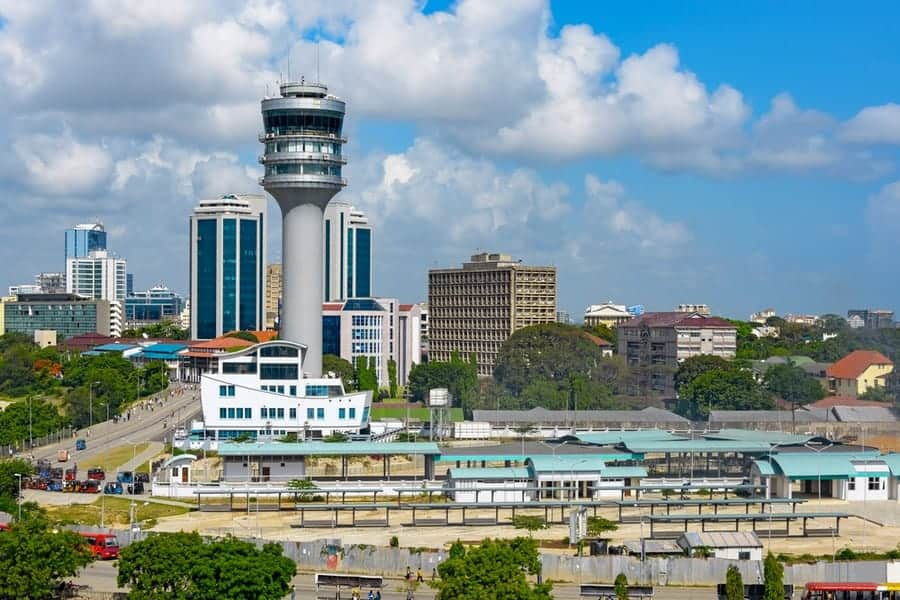
What is the Capital of Tanzania?
The official capital of Tanzania is Dodoma, which is the political center. Dar es Salaam remains the largest city and the economic hub. Moshi and Arusha are gateway cities for tourism.
Is Tanzania an Independent Country?
Tanzania is a result of the unification of Tanganyika (the mainland) and the Zanzibar islands. Tanganyika and Zanzibar united on April 26,1964, forming the United Republic of Tanzania.
Tanzania gained independence from British rule on December 9, 1961 and Zanzibar became free through a revolution on January 12, 1964. Tanzania was colonized by Germany in the late 19th century and later became a British mandate following World War I.
Where is Zanzibar, Tanzania?
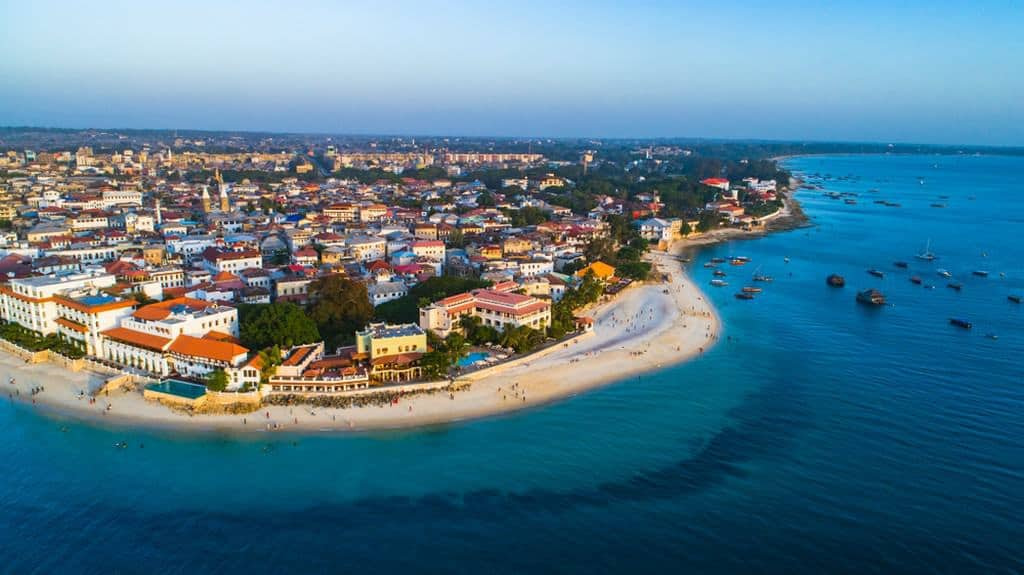
Zanzibar is an archipelago in the Indian Ocean, 16-31 miles (25-50 kilometers) off the coast of mainland Tanzania. It is a semi-autonomous region of Tanzania.
Travel Essentials
What Time is it in Tanzania?
Tanzania operates on East Africa Time (EAT), which is three hours ahead of Greenwich Mean Time (GMT+3).
Tanzania is 8 hours ahead of the Eastern Standard Time and 11 hours ahead of the Pacific Standard Time. Tanzania is 2 hours ahead of Western Europe.
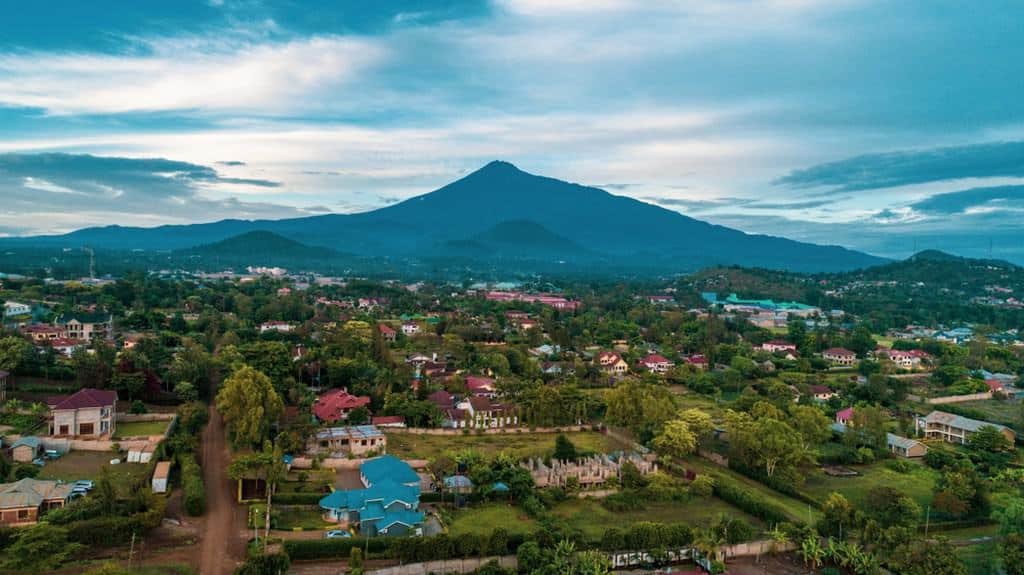
What Language is Spoken in Tanzania?
Swahili and English are the official languages of Tanzania. Swahili, or Kiswahili, is widely spoken and serves as the lingua franca, or common language, in East Africa.
However, Tanzania comprises over 120 ethnic groups. Other significant languages spoken in the country include Maasai, Digo, Datooga, and Chindali.
What to See in Tanzania?
Top attractions in Tanzania include safaris in the country’s wildlife parks and conservation areas (Serengeti National Park and Ngorongoro Crater), climbing Mount Kilimanjaro, visiting Zanzibar’s beaches, and the historic Stone Town.
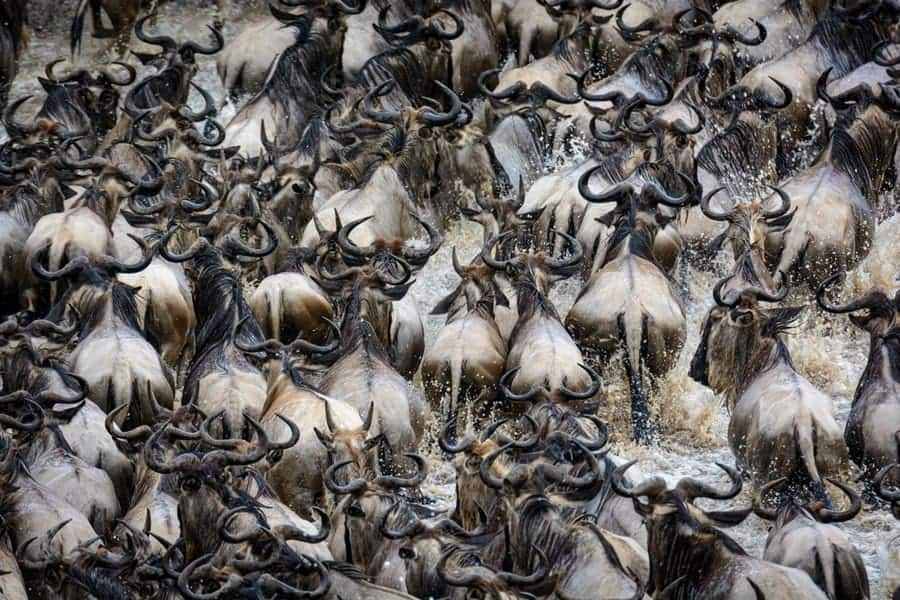
What is the Weather in Tanzania?
Tanzania’s climate varies from tropical along the coast to temperate in the highlands. The country experiences two rainy seasons and two dry seasons.
When is the Best Time to Visit Tanzania?
The best time to visit Tanzania depends on the activities you plan to do. For climbing Kilimanjaro, come during the two dry seasons – from December to mid-March and from June to October. For wildlife viewing and the Great Migration, the long dry season from June to October is ideal.
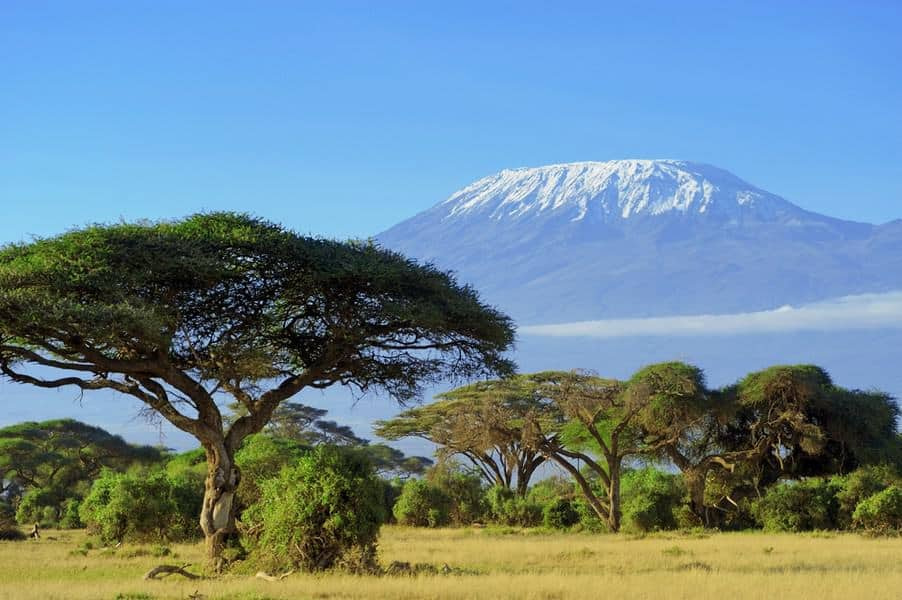
What to Wear in Tanzania?
Dress in Tanzania is casual but conservative. Lightweight, breathable clothing is recommended for the day, with warmer layers for cooler evenings. Conservative attire is especially important in rural and Muslim-majority areas.
How to Travel to Tanzania?
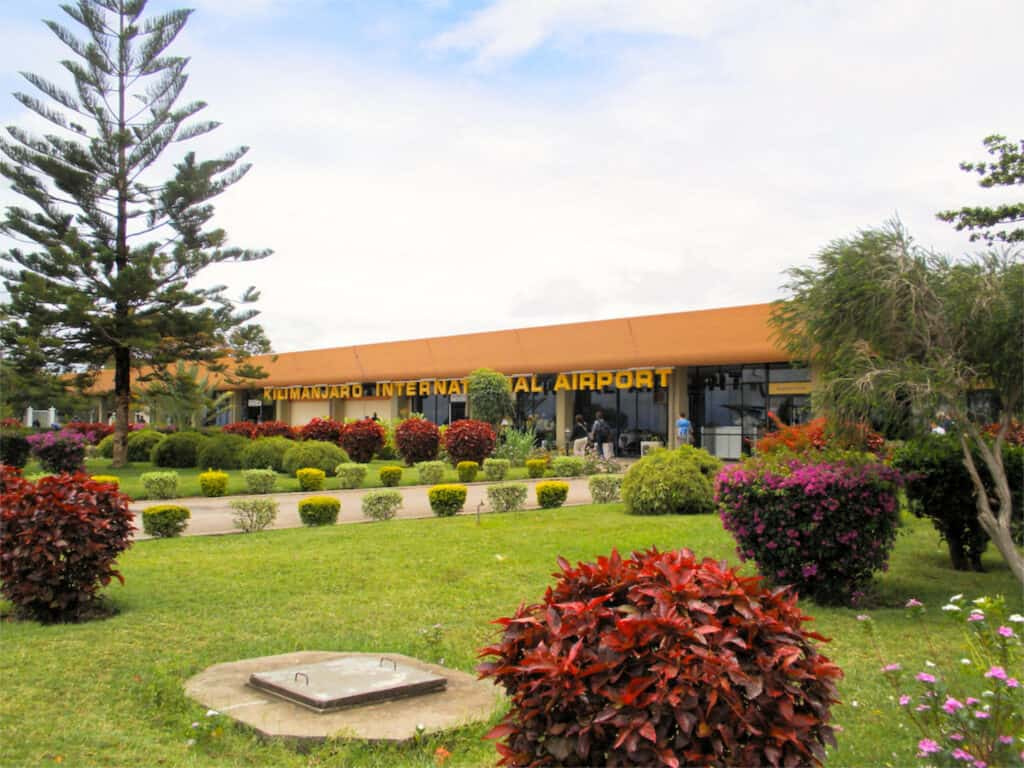
The main entry points into Tanzania are Julius Nyerere International Airport (DAR) in Dar es Salaam, Kilimanjaro International Airport (JRO) near Arusha, and Abeid Amani Karume International Airport (ZNZ) in Zanzibar.
How Safe is Tanzania?
Tanzania is generally considered safe for travelers, but it is advisable to take standard safety precautions, especially in urban areas.
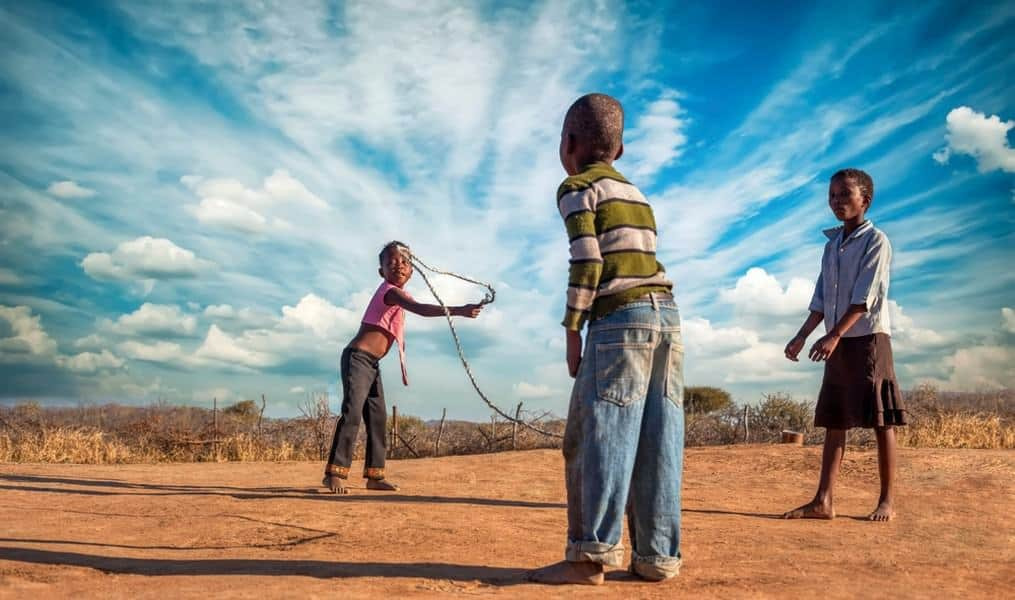
Do I Need a Visa for Tanzania?
Most visitors will need a visa, which can be obtained on arrival, through an embassy or consulate, or via the e-Visa system. Citizens of the United States, United Kingdom, Canada, Australia and New Zealand are all required to have a visa.
What Adapter do I Need for Tanzania?
Tanzania uses the Type G electrical plug (British three-pin), with a standard voltage of 230 V and a frequency of 50 Hz.

Currency and Payments
What is the Currency of Tanzania?
The currency of Tanzania is the Tanzanian Shilling (TZS), comprising various denominations in both notes and coins.
Are US Dollars Accepted in Tanzania?
US Dollars are commonly accepted, especially in the tourism sector. It’s essential to bring newer, undamaged bills as older dollars (printed before the year 2006) or those in poor condition (worn or with tears) may not be accepted.
Where Can I Convert Currency to Tanzanian Shillings?
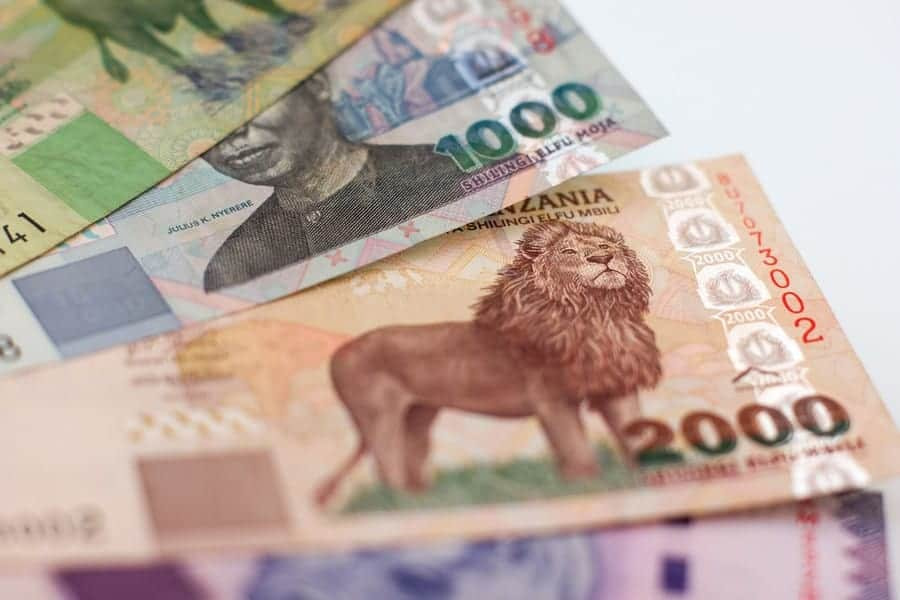
Foreign currency can be exchanged for Tanzanian Shillings at banks, forex bureaus, and some hotels. Airports and major cities like Dar es Salaam and Arusha have numerous exchange facilities.
The conversion as of December 24, 2023 is about 2,500 shillings to one US dollar.
Can I Use Credit Cards in Tanzania?
Credit cards are increasingly accepted in major cities and tourist areas, but it’s advisable to always have cash as backup, as card machines can be unreliable due to connectivity issues.
Are There ATMs in Tanzania?

ATMs are widely available in cities and larger towns and usually offer a better exchange rate for withdrawing Tanzanian Shillings directly from your bank account.
Is it Common to Bargain in Tanzania’s Markets?
Bargaining is a common practice in Tanzanian markets. It’s expected in most informal shopping scenarios but should be done respectfully.
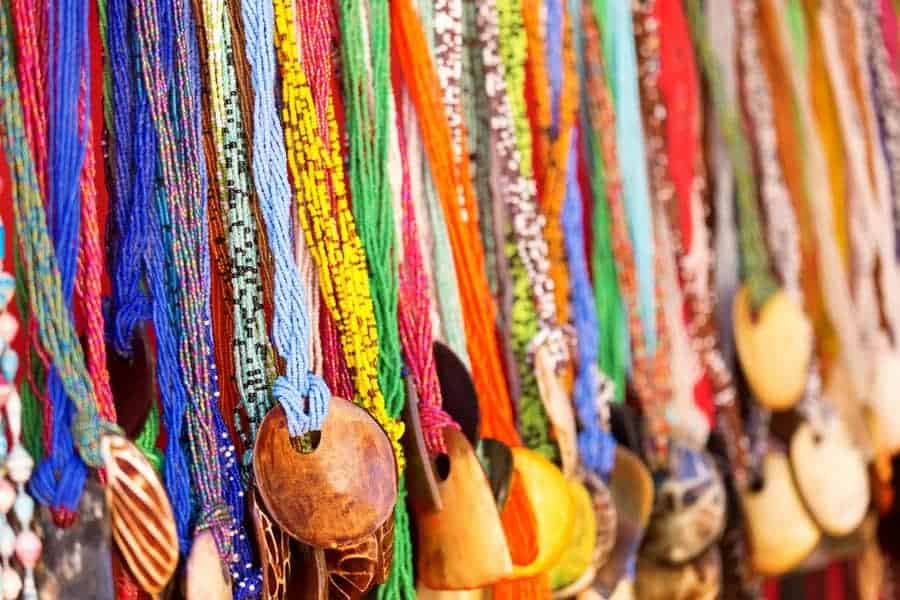
Is Tipping Required in Tanzania?
Tanzania has a strong culture of tipping for tourist services. Tipping is expected after Kilimanjaro climbs and safaris. Ask your operator what amounts they recommend as there could be variances between companies.
At hotels, giving hotel staff a small tip (one dollar) for assisting with luggage is appreciated. At restaurants, a 3-5% tip is customary at tourist-oriented restaurants. It’s not expected at local eateries.
Health and Safety

What Vaccines are Required for Travel to Tanzania?
For travel to Tanzania, Yellow Fever vaccination is mandatory if coming from or transiting through an endemic country. Recommended vaccinations include Hepatitis A, Typhoid, and possibly Hepatitis B and Rabies, depending on your itinerary.
What are the Health Risks in Tanzania?
Common health risks include malaria and traveler’s diarrhea. Protect yourself by using mosquito repellents, sleeping under mosquito nets, and considering antimalarial medication. Also, practice good hygiene and be cautious with food and water.
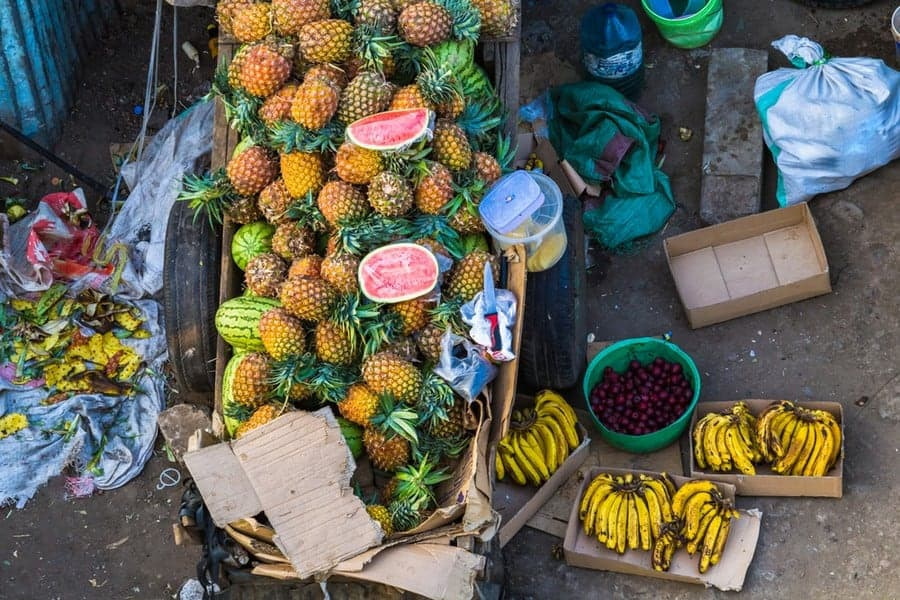
Is Tap Water Safe to Drink in Tanzania?
Tap water is not safe for drinking. Drink only bottled or treated water in Tanzania.
What are the Emergency Numbers in Tanzania?
The general emergency number in Tanzania is 112.
Cultural Etiquette

What are the Local Customs and Cultural Practices in Tanzania?
Tanzanians value politeness and respect. Greetings are important in social interactions, and it’s customary to engage in brief small talk before getting down to business.
Loud or aggressive behaviour, drunkenness, foul language and disrespect, especially towards older people, is offensive.
Be open and respectful towards local customs and traditions, even if they are different from your own. Avoid making negative comments and be willing to learn from the locals. If you have questions about what is appropriate, ask one of our local staff.
What is the General Dress Code for Tourists in Tanzania?
Tanzanians are conservative and religious. The majority of the population is either Christian or Muslim. They value modesty and this is reflected in their clothing.
Therefore, it is advisable for tourists to also dress modestly. For men, pants and t-shirts are acceptable. For women, clothes that cover the shoulders, cleavage, midriff and knees is recommended. In coastal and Muslim-majority areas, such as Zanzibar, even more conservative attire is appropriate.

Note that it is fairly common to see visitors dressed in western style, casual summer clothing (tank tops and shorts) in tourist areas. Just know that in Tanzania, shorts are only worn by primary schoolaged boys. For an adult, wearing shorts is culturally equivalent to walking around in underwear.
Is it Okay to Take Photos of People in Tanzania?
Always ask for permission before taking photos of local people. Some may not wish to be photographed due to personal or cultural reasons. Offering to share the photos or a small payment for their time can be a polite gesture.
Are Public Displays of Affection Acceptable in Tanzania?
Public displays of affection, such as kissing, hugging and holding hands, are not common in Tanzania, especially in rural and Muslim-majority areas. It’s advisable to be more reserved in public to respect local customs.
How does Tanzania View Homosexuality?

Unfortunately, Tanzania has criminalized same-sex relationships. Homosexuality is illegal in Tanzania (including Zanzibar) and is not well tolerated in Tanzania’s conservative society. It could lead to arrest and imprisonment. We have never had an issue with any of our clients, but we recommend that our guests of all sexual orientations avoid public displays of affection.
What is the Etiquette for Visiting Religious Sites in Tanzania?
When visiting religious sites, dress conservatively and follow any specific rules of the site. Remove your shoes when entering a mosque or Hindu temple. Stay quiet and not disturb worshippers.
Food and Cuisine
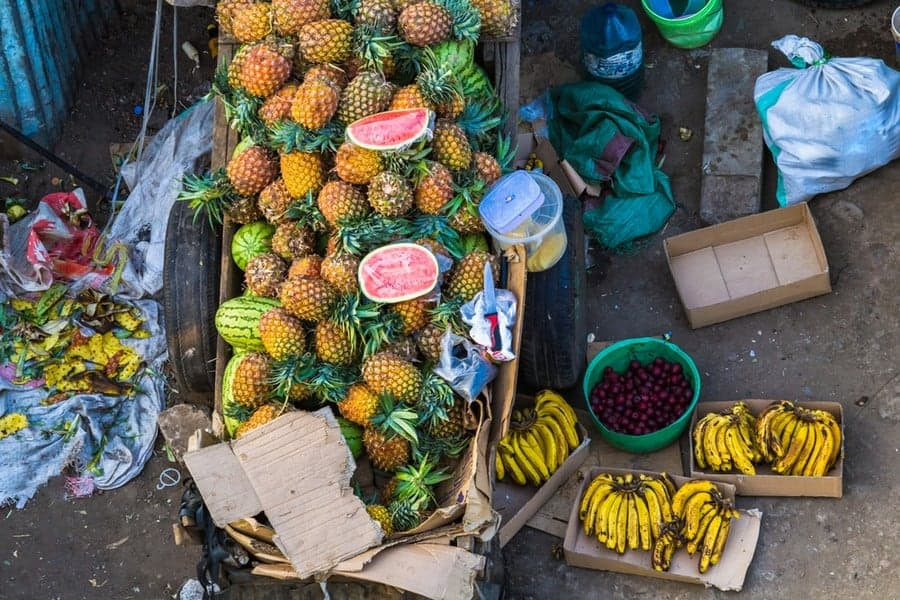
What is Traditional Tanzanian Cuisine Like?
Tanzanian cuisine varies regionally but commonly includes dishes like Ugali (cornmeal porridge), Nyama Choma (grilled meat), and seafood along the coast. Spices and flavors are influenced by Indian, Arab, and African culinary traditions.
Are There Any Dietary Restrictions I Should Consider in Tanzania?
While no general dietary restrictions apply, it’s advisable to eat well-cooked food, avoid raw vegetables, and peel fruit to prevent traveler’s diarrhea.
Can I Find International or Vegetarian Food in Tanzania?
International cuisine is available in major cities and tourist areas. Vegetarian options are increasingly available, especially in urban and tourist-centric locations.
WiFi and Cell Service
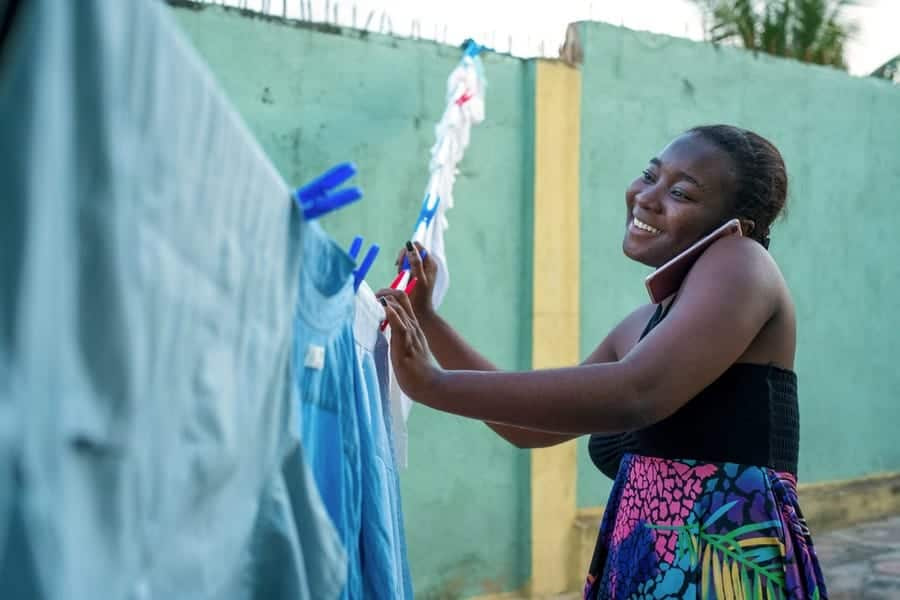
Is Wi-Fi Widely Available in Tanzania?
Wi-Fi is available in most urban areas, hotels, and some safari lodges. However, connectivity may be limited or slower in remote areas.
Will My Cell Phone Work in Tanzania?
Whether your cell phone will work in Tanzania largely depends on your phone’s compatibility with the local network frequencies and whether it’s unlocked. Tanzania primarily uses GSM network technology though 4G/LTE services are increasingly available. If you plan to use 4G/LTE services in Tanzania, ensure your phone is compatible with the LTE frequency bands used in Tanzania.

Should I Buy a Local SIM Card?
Buying a local SIM card is a good option for staying connected, especially for longer stays. Ensure your phone is unlocked to use a local SIM.
What is the Postal Service Like in Tanzania?
The postal service in Tanzania is available but can be slow and less reliable for international mail. For important or time-sensitive documents, consider using international courier services.
Transportation
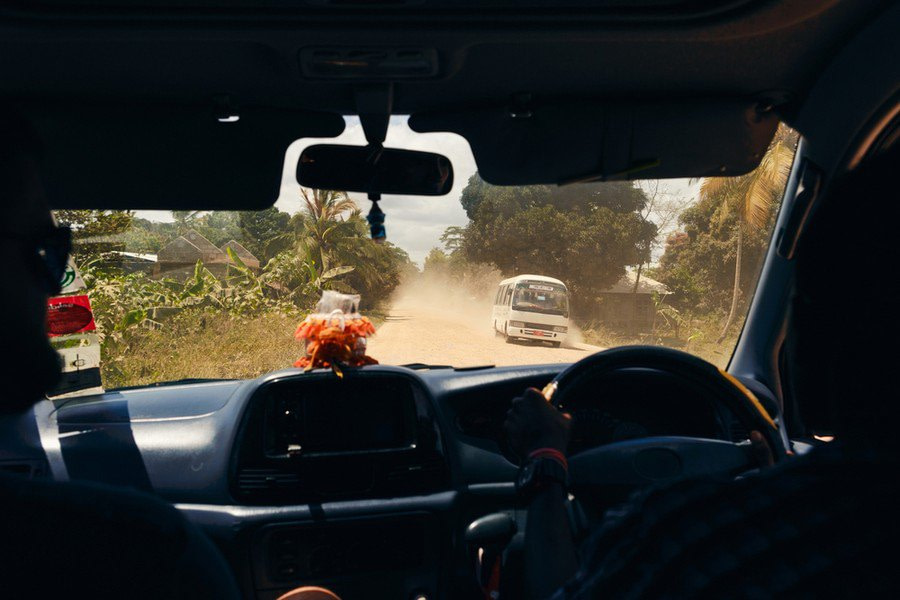
What is the Best Way to Get Around in Tanzania?
Options for travel include domestic flights for long distances, buses for intercity travel, taxis, and car rentals (4×4 recommended for rural areas). Ridesharing services such as Uber and Bolt are available in major cities.
Are Car Rentals Available in Tanzania?
Car rentals are available, especially in major cities and tourist areas. However, self-driving can be challenging due to road conditions and driving standards.
How Reliable is Public Transportation in Tanzania?
Public transportation, including buses and minibuses (dala-dalas), is widely used but can be crowded and less comfortable. Reliability varies depending on the route and region.
Economy
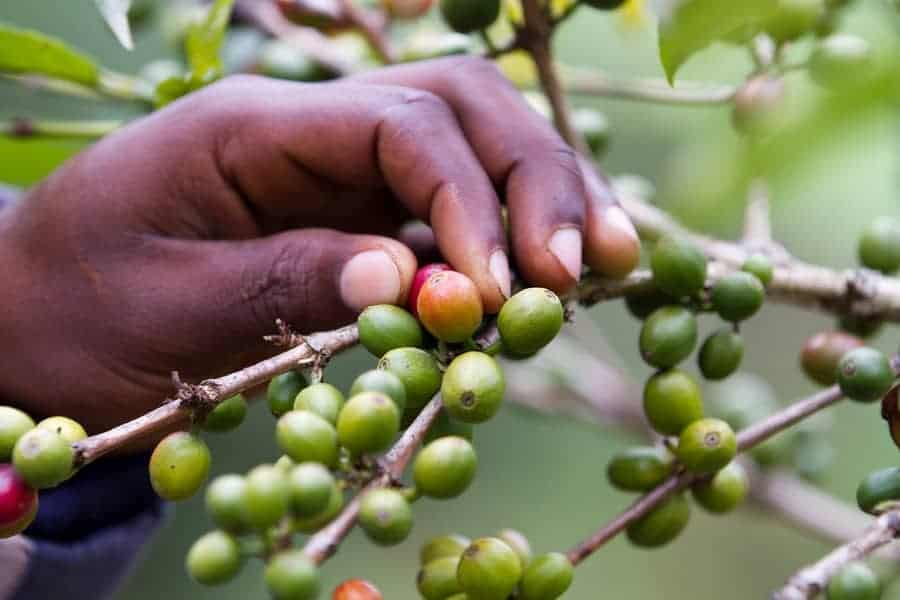
What are the Main Industries in Tanzania?
Agriculture is Tanzania’s primary source of revenue, contributing about a quarter of the GDP. Crops like coffee, tea, cotton, cashews, and tobacco are their major exports. The country also exports fish and horticultural products.
The country has mineral resources, with mining, particularly of gold, diamonds, and tanzanite, being another major contributor to its revenue.
Tanzania’s tourism industry is a significant revenue earner as well, with attractions like national parks, Mount Kilimanjaro, and Zanzibar. Tourism is vital to Tanzania’s economy. It is one of the country’s fastest-growing sectors and a significant source of foreign exchange earnings.
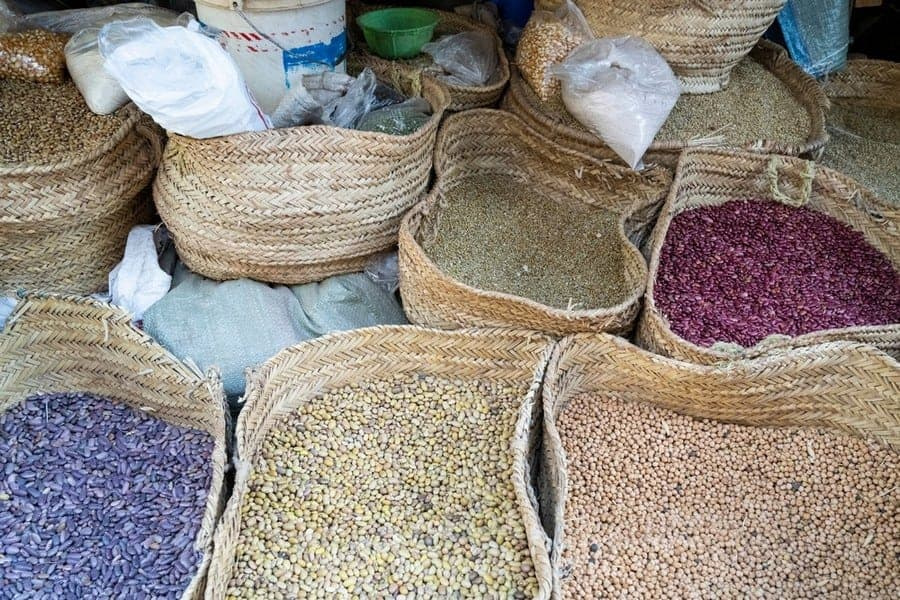
What Role Does Foreign Aid Play in Tanzania’s Economy?
Foreign aid plays a significant role in Tanzania’s economy, particularly in health, education, and infrastructure development. The country receives aid from various international donors and organizations, which helps in implementing development projects and alleviating poverty.














































